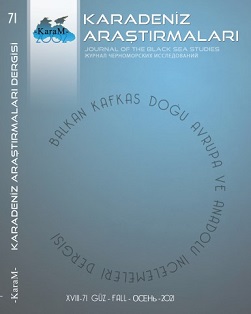Karadeniz Ekonomik İşbirliği Örgütü’ne Üye Ülkelerin İnovasyon Performanslarının Critic Tabanlı Gri İlişkisel Analiz Yöntemi ile İncelenmesi
An Investigation on the Innovation Performances of the Member Countries of the Black Sea Economic Cooperation Organization with the Critic-Based Gray Relative Analysis Method
Author(s): Furkan Fahri AltintasSubject(s): Supranational / Global Economy, Energy and Environmental Studies, Financial Markets, Globalization, Socio-Economic Research
Published by: Karadeniz Araştırmaları Merkezi
Keywords: Innovation; Global Innovation Index; BSEC; CRITIC; Gray Relational Analysis;
Summary/Abstract: In the study, the innovation performance of the Black Sea Economic Cooperation Organization (BSEC) group countries, which have a very important geopolitical and geostrategic position in the world, were measured by CRITIC -based Gray Relational Analysis (GRA) over the component values determined in the Global Innovation Index (GII) for 2020. According to the findings, it was first determined that the most important innovation component within the scope of CRITIC method is human capital and research. Secondly, it has been determined that the countries whose innovation performance exceeds the average according to the CRITIC -based GRA method are Bulgaria, Russia, Turkey, Ukraine, Romania and Greece. On the other hand, countries with innovation performance below average are Serbia, Moldova, Georgia, Armenia, Azerbaijan and Albania. Accordingly, it was concluded that in order to be compatible with other BSEC countries in innovation, these countries should increase their innovation performance by giving importance to other components, primarily human capital and research. Apart from these, it has been evaluated that GII and GIA are compatible with ARAS, BTA, COPRAS, EDAS, MAUT, ROV, TOPSIS and WASPAS methods and can be explained by these methods.
Journal: Karadeniz Araştırmaları
- Issue Year: 2021
- Issue No: 71
- Page Range: 547-570
- Page Count: 24
- Language: Turkish

